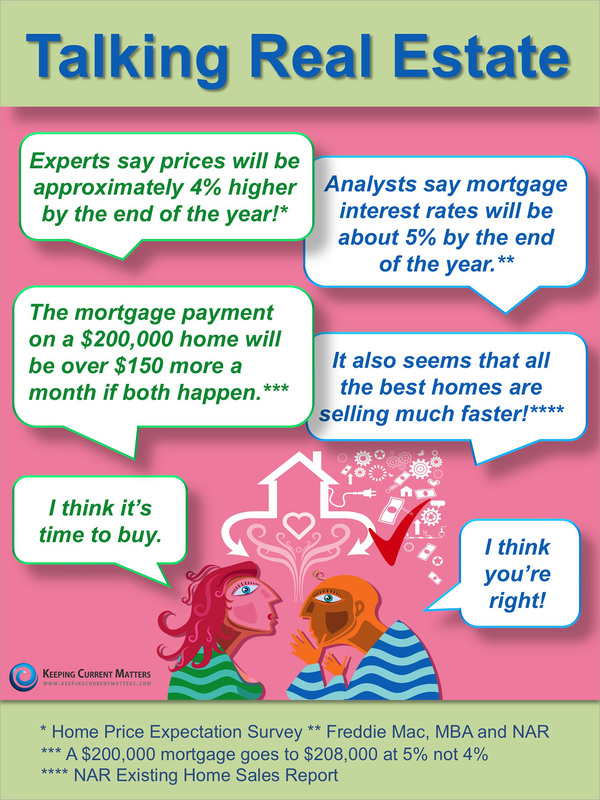 As I was driving into the office today, I heard a national mortgage company advertising lender paid mortgage insurance, and I thought about how misleading the ad was to the public. So, here is an overview of mortgage insurance. What is mortgage insurance? Basically, mortgage insurance protects the lender if you default on your loan. It is not home owner's insurance in any way, and really offers the home owner no protection at all. For a conventional loan, it is not required if you are putting down 20%. For an FHA loan, the MI is always required. And, for conventional loans, it is actually Private Mortgage Insurance, which is why it is abbreviated as PMI. For FHA and USDA, it is just MI. PMI and MI can vary in terms of cost due to the following factors: Loan type, Loan Amount, LTV, and credit score. PMI can be removed after a minimum of two years if the loan to value hits 78%. That can happen from additional principle payments or appreciation. Either way, you will likely have to have an appraisal from the banks approved list of appraisers. In fact, they will most likely order the appraisal themselves. You will also have had to have on time payments for at least 24 months. One hitch with FHA loans is that the MI cannot be removed.....ever. This is a recent change, that is often misunderstood. So, what's with lender paid PMI? The lender makes the interest rate higher to pay for the PMI. It will usually result in a lower payment versus a payment with normal PMI. The hitch comes in that your rate will be locked in higher. So, if you were to keep the loan for the full 30 years, you would actually pay more than if you had PMI that could be removed. The point is that the lender isn't paying it for you out of the goodness of their heart. You pay a higher rate. It may be worth it. You may be able to afford a larger, nicer, more expensive home with lender paid MI. But, just know going into it that there are pluses and minuses to this loan product. If you have questions, don't hesitate to call me at 678-992-3817. If you have feedback, please leave it below! And, as always, "Make the Wise Move". By Keith Loria
Our military personnel do a great deal for our country, and one of the ways the government thanks them for their service is with the VA loan program, which allows both past and current military personnel a better option for financing. Originally established in 1944 as part of the Servicemen’s Readjustment Act, a VA loan is available for any individual who has served in active duty in any branch of the U.S. military for a minimum of 90 days, and it has helped millions of people and their families purchase a home. In addition to servicemen and servicewoman, non-active duty personnel, such as individuals in the Army Reserves or National Guard, may apply for a VA-backed mortgage, provided they have completed six years of service. The spouses of deceased or missing military members are also eligible if they have not remarried. The major advantage of a VA loan is that it doesn’t require a down payment. It also doesn’t have private mortgage insurance. It does require the borrower to pay a one-time funding fee on their purchase, which can be paid up front or financed into the total cost of the loan. The funding fee for regular military members is 2.15 percent of the loan. Reservists pay a fee of 2.40 percent. According to recent figures by the Department of Veteran’s Affairs, more people took advantage of the program in 2013 than ever before, with close to 630,000 VA loans given out. This was mostly due to historically low interest rates. Still, many veterans, especially those discharged years ago, often don’t realize that such a benefit exists. That’s why the Department of Veteran’s Affairs has increased its efforts to let veterans know about the VA loan program, and all the benefits it offers. To qualify, borrowers must show enough monthly income after paying personal debts and housing costs to meet “residual income” levels set by the department. A VA loan must be for a primary residence and the limits on the amount someone can get are based on area median home prices. The 2014 limits range from $417,500 to $1,094,625. One other important note: borrowers who received a dishonorable discharge from any military branch are not eligible. To learn more about the VA loan program, contact our office today. Reprinted with permission from RISMedia. ©2014. All rights reserved. In Trulia’s 2014 Rent vs. Buy Report, they explained that home ownership remains cheaper than renting throughout the 100 largest metro areas in the United States; ranging from an average of 5% in Honolulu, all the way to 66% in Detroit, and 38% Nationwide!
click here for other interesting details from Trulia's report.  Edited 10/01/2013- I was dead wrong yesterday. Well, no matter which side of the isle you are on, the government shutdown could affect you. As far as Real Estate transactions go.... this is a big deal. President Obama said specifically that "Federal loans for rural communities, small business owners, families buying a home will be frozen," Yesterday, I went into each of the loan products and what the impact would be. Well, if you aren't already in process, there will be significant delays regardless of the loan product. Mortgage companies use a system to verify SSN's and another system to verify tax returns/income. These systems are obviously run by the IRS. And, these systems are currently shut down. Until the government is started back up, cash offers should carry even more weight than normal.  So, a while back, I started a series about what makes a good agent. There are obviously two sides to a deal. The agent that represents the buyer, known as a buyers agent or the selling agent. Then, there is the agent that represents the seller, known as a listing agent. I wrote about some of the general things that makes a good agent with the part I of this series. Then, I posted what makes a good buyer's agent. Now, we will talk about what makes a good listing agent. #1) Knowledge- I started to try to list out everything that a good agent should know. And, well, it was a long list. Here are the five major things that jumped out at me. Property value- You don't want to ask too much and have the listing go stale, and you also don't want to under price your home and leave money on the table. (of course, in this market under priced homes are quickly bid up..so, believe it or not, it is even better to under price your home right now than to over price it) Marketing- How to get the most eyes on your property. Yes, the listing services are a great start. It is more than just that. It is having a great website that ranks highly on Google. It is featuring them on Zillow, Trulia and Realtor.com. It is about getting them on Craigslist, Facebook, and Backpage. Basically, everywhere you can get them. Some agents feel it is a waste of time to run Craigslist and Backpage ads. But, the first time homebuyer often starts there because they are comfortable with that sight. They have looked for things there already. Most people try the familiar first. Loan products and lenders- Why does this matter? The seller isn't getting a loan. The seller isn't buying the house. Why should the listing agent care? Well, there are many different loan programs out there. And, so many things depend on the type of loan. The listing agent should know the different types of loans and what the implications are. The two biggest factors that change with loan types are time to get done and repairs required. Some loan programs will require you to fix certain things. So, you may be looking at two similar offers and decide based on price alone. Only, one loan type may cost you thousands in repairs that the other would not have. Oh, and of course, if the listing agent knows the loan types, then they can help you navigate those waters more smoothly and get the house closed on time. Common negotiating strategies- So many people think that the only thing that matters is price. But, this couldn't be further from the truth. Some buyers' agents actually overbid to get the house under contract, only to then negotiate the price during due diligence. Some look to have ridiculous contingency periods that protect them long after what is reasonable and well into the realm of abusive. Some overbid, knowing that the appraisal will knock it down. Other than perhaps the first one, these are not 'improper'. They are just strategies. There are more, especially when you get into different types of sale. Many negotiations are like chess matches. The good agents see the board from many different angles. Contracts- We use standardized forms. However, so many agents have misconceptions about parts of the form. It's as if we don't need to read and understand them, because it is a 'standard' contract. And, due to this complacency, many agents put their clients in jeopardy by an improperly completed field. #2) Communication- This is one of the most common complaints I hear. This is key. Not only to the seller, but also to other agents. I know how frustrating it can be calling a listing agent to show a home and not hearing back for days. Or, calling with a question so that I can submit an offer and hearing nothing. And, of course, communicating with the seller to let them know what is going on and what you are doing to get their house sold. #3) Willingness to invest time, money and resources- Listing agents are only paid if they sell the home. Due to this, some are unwilling to invest the proper amount of time or, more importantly, money to getting the listing marketed correctly. The shortcuts that they take will help their wallet, but it certainly doesn't help your home sell or sell for as much as possible. #4) Knowing our own limitations- I do not stage homes, nor do I take the photos that go on all my marketing. I hire a certified staging specialist and a professional photographer. Does this increase my expenses and decrease my bottom line? Yes. I could easily walk around and give you mediocre staging advice. But, I know that homes sell better when staged. And, I know that those photographs are what represents your home to millions of people. This is so very important, especially in upper price ranges. It isn't just about getting your home sold. It is about getting the most for your home in the shortest amount of time. #5) Counsel- Your agent is your advocate. And, they should be willing to go to bat for you at all times. That should never change. They represent you in this transaction. However, they should also be able to put things in perspective. The other party may not be in the right. However, it may cost you more in the long run to be right, than to let the other party have their way. The agent has to be able to frame those conversations. Like I said at the beginning, there is a lot that goes into being a great listing agent. It would be hard to pick the most important. I supposed it would be integrity. A person who has integrity would work on the rest because they would know how important each of these is. What do you think the most important attributes are? Remember this is a an overview for the entire United States. Call me directly for how your market is doing.
|
David and Amanda BlantonMake the Wise Move! Categories
All
Testimonials 557886  David is awesome to work with. He knows the area very well. He is extremely responsive, always took my calls and answered my emails and txts. He truly ... more David is awesome to work with. He knows the area very well. He is extremely responsive, always took my calls and answered my emails and txts. He truly ... more   5.0/5.0 5.0/5.0 by philipkupersavage 557657  David was extremely helpful.....We were very picky buyers & he never pressured us to look at a house outside of our parameters or place an offer... he ... more David was extremely helpful.....We were very picky buyers & he never pressured us to look at a house outside of our parameters or place an offer... he ... more   5.0/5.0 5.0/5.0 by dwcourter 309784  Mr. Blanton helped us find the home of our dreams and he did by listening to what we wanted. He taught us about the housing market, guided us in the ... more Mr. Blanton helped us find the home of our dreams and he did by listening to what we wanted. He taught us about the housing market, guided us in the ... more   5.0/5.0 5.0/5.0 by user30821228 Archives
May 2016
Categories
All
|

 RSS Feed
RSS Feed
